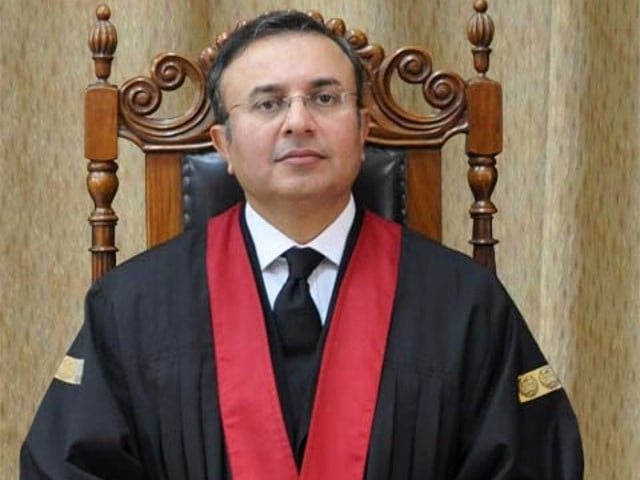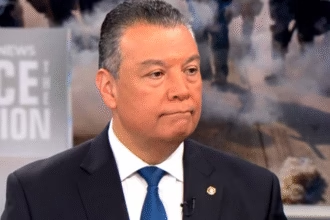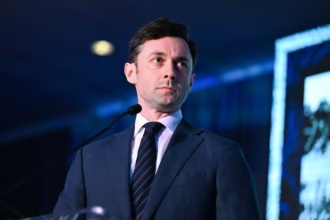ISLAMABAD:
In a blistering letter, Supreme Court senior puisne judge Syed Mansoor Ali Shah has accused Chief Justice of Pakistan (CJP) Yahya Afridi of undermining the independence of the apex court, urging him to answer six questions publicly at the judicial conference on September 8.
In the seven-page letter dated September 4, Justice Shah said it was the “persistent and complete indifference” of the CJP that compelled him to write to him as his earlier letters and written communications on a number of issues went unanswered and undiscussed.
“Not once have I received a reply either in writing or verbally. Such silence from the CJP to the senior-most judge of the court is not merely discourteous; it undermines the collegial traditions of this court and violates the institutional courtesy without which a constitutional court cannot function,” he said.
Enumerating the issues, Justice Shah asked the CJP as to why he had never convened the three-member committee formed under the Practice and Procedure Act, 2023 “to put an end to the one-man show in the formation of benches”.
He said the act required that all causes, matters, petitions, appeals, or reviews — other than those within the domain of the Constitutional Bench under Article 191A (3) — be placed before benches constituted by the three-member “PAPA” committee.
“Yet, since your assumption of office in October 2024, not a single official meeting of the PAPA committee has been convened. Bench formation and cause-lists are being issued unilaterally, without any committee deliberation.
“Rosters are circulated for signatures, expecting members to endorse them blindly without discussion of case allocation or categorization. As a senior member of the committee, I have had no opportunity to participate in its work as mandated by law.”
He said this was a direct violation of the act and raises serious concerns. He asked why junior judges are regularly assigned to three-member benches while senior Judges are confined to two-member benches.
“Why are matters of national importance with far-reaching policy implications not fixed before senior benches? The pattern suggests that independent judges are being sidelined, not for reasons of efficiency, but for reasons of control,” he said.
Justice Shah also asked CJP Afridi as to why “historic revision” of the Supreme Court Rules, 1980 was approved by circulation rather than after discussion and deliberation in a full court meeting.
He said the SC rules are a constitutional document governing the functioning of the court and their first revision in four decades was an event of historic significance, which required a full court meeting on the administrative side.
“Instead, you chose to approve the draft rules by circulation — a process suited to routine matters not to reshaping the court’s constitutional framework.
“By avoiding deliberation, you deprived the court of collective wisdom and diminished judicial dialogue. This course reflects a lack of collegiality and a preference for unilateral authority,” he said.
Justice Shah also asked Justice Afridi as to why was the policy on releasing dissenting opinions adopted by soliciting individual opinions of the judges rather than an open deliberation in a full court meeting.
He said the recent policy on releasing dissenting opinions with the majority judgment was approved through a unique process of soliciting views of individual judges by the registrar.
“There is no legal or institutional basis for individual opinion gathering on such critical matters unless specifically authorised by the full court, and even then, only for matters that are procedural in nature.
“It cannot be treated as a substitute for full court deliberation, nor can responses to this letter be used to formulate policy in isolation. A matter of jurisprudential weight was reduced to a secretive tick-box exercise and the court was denied the richness of open deliberation.
He said a full court meeting is not merely a procedural formality it is the bedrock of judicial collegiality. It allows all judges to come together, to deliberate, to exchange ideas, and, through open dialogue, to persuade or be persuaded.
“In such a forum, a judge may revise or refine their view after hearing from their colleagues, or may help develop collective wisdom that is far more robust than isolated responses. This essential element of judicial democracy is entirely lost when opinions are sought in writing and in silos.”
The senior puisne judge also asked the CJP to tell the judicial conference as to why a General Standing Order (SGO) on leave was issued that subjected judges to controls inconsistent with judicial independence and the Presidential Order of 1997.
He said for the first time in the court’s history, a GSO dictates that judges are “whole-time” at the disposal of the state — a language wholly alien to a constitutional court.
He said judges are not regimented officers and their independence is constitutionally entrenched.
“Globally in the UK, US, Canada, Australia, South Africa, Germany, France, Singapore, and India — functionaries. Leave is recognized as an entitlement, not a favour.
He said the newly introduced requirement under the GSO that a judge of the Supreme Court, while on leave or vacation, must disclose his residential address and contact details is alien to the practice of constitutional courts worldwide.
“It borrows from the ethos of civil-service bureaucracy and attempts to transplant it into the judiciary, with deeply corrosive consequences. A judge of this court is not a supervised functionary of the state but a constitutional actor whose independence is both decisional and personal.
“To compel the disclosure of a judge’s private residence is not administration, it is surveillance. It reduces the dignity of the office to that of a monitored employee and cloaks an instrument of control in the garb of procedure.
“No constitutional court of repute, the US Supreme Court, the UK Supreme Court, or the Constitutional Court of South Africa has ever imposed such a condition,” he added.
He also asked the CJP as to why the petitions challenging the 26th Constitutional Amendment have not been listed for hearing before the original full court.
He said the legitimacy of the office of the CJP and the court hangs in the balance in the pending petitions challenging the 26th amendment but the petitions remain unheard for nearly a year, though they concern the independence of the court.
“They must be heard by the original full court, excluding judges elevated after the amendment.
Until then, any initiative under your leadership remains institutionally fragile, for its foundation is constitutionally suspect. True leadership lies not in managing compliance but in ensuring that the court rises above suspicion as the fearless guardian of the Constitution,” he said.
The judge also asked the top judge whether he is nurturing independence among judges, or enforcing compliance to turn this court into a regimented force.
“These are institutional questions that strike at the heart of independence. As the new judicial year commences, and in view of the judicial conference you have convened to review reforms and set priorities, the nation and the judges of this court look to their chief justice not for silence but for clarity.
“I trust that you will use the judicial conference as a moment of institutional renewal by answering these questions and reaffirming the principles of collegiality and constitutional fidelity,” he added.









